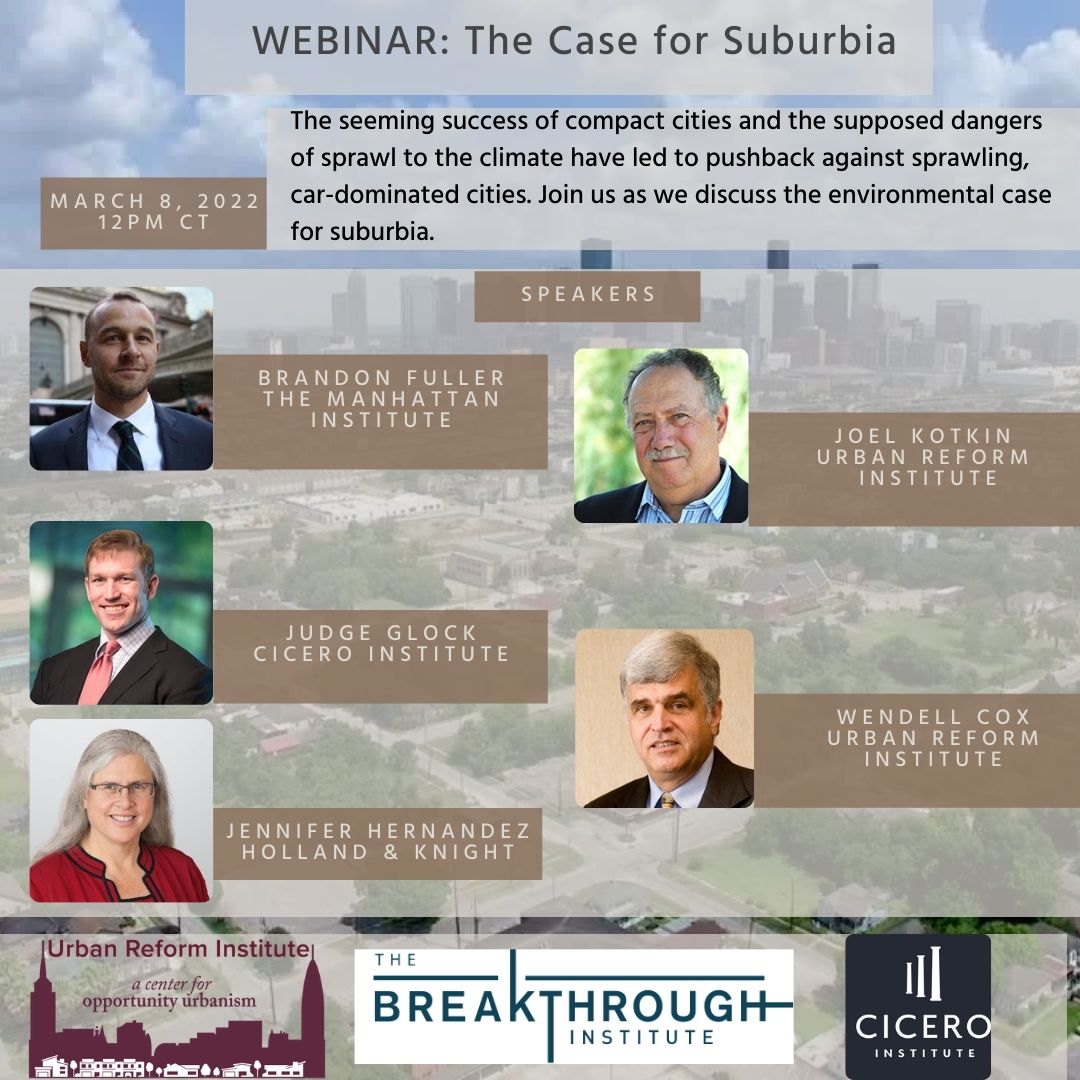As the centers of media and political discourse, large cities, notably New York, have a unique ability to promote themselves, asserting that dense, core urban areas own the future. Yet in reality, even during good times, and well before the pandemic, Americans have been headed, in increasing numbers, to suburbs, exurbs and to smaller cities. Romantic illusions to past urban recoveries may make people feel better, but they ignore both long-lasting trends and new realities.
People vote with their feet, and today, only a small percentage of Americans live in or around the core urban counties. In 1950, the core cities accounted for nearly 24% of the U.S. population; today the share is under 15%. In contrast, the suburbs and exurbs grew from housing 13% of the metropolitan population in 1940 to 86% in 2017, a gradual increase of 2% a year. Despite all the talk of young people and families and others coming “back to the city,” suburbs accounted for about 90% of all U.S. metropolitan growth since 2010; over that time, suburbs and exurbs of the major metropolitan areas gained 2 million net domestic migrants, while the urban core counties lost 2.7 million.
Much the same can be said about the economy. During the last decade, roughly 80% of all job growth has been in the suburbs. Suburbs also generate the bulk of patents; in fact, three-quarters come from areas with less 3,500 people per square mile, less than half the density associated with urban centers.
The pandemic accelerated these already existing trends. New census numbers show that San Francisco, New York and Los Angeles led the population loss sweepstakes over the past year, while people headed to the Sunbelt, suburbs, exurbs or even small towns.
But the real issue now is not so much the pandemic per se but the rise of dispersed work. Midtown offices are still more than half empty — and that’s not just the pessimist’s way of seeing the glass. While they will recover some, they will likely not replace a large portion of what was lost. Stanford economist Nicholas Bloom suggests that remote workers will ultimately constitute at least 20% of the workforce, more than three times the pre-pandemic rate.
This leaves the large central business districts such as Midtown particularly exposed. As long-time urban booster Richard Florida notes, central business districts represent “the last gasp of the old Industrial age.” He adds, “This idea that you have to pack and stack these office workers and they have to commute in at 9 and leave at 5 and work in cubicle farms— it’s just silly. It is completely out of touch with the way people work.”
Read the rest of this piece at NY Daily News.
Joel Kotkin is the author of The Coming of Neo-Feudalism: A Warning to the Global Middle Class. He is the Roger Hobbs Presidential Fellow in Urban Futures at Chapman University and Executive Director for Urban Reform Institute. Learn more at joelkotkin.com and follow him on Twitter @joelkotkin.
Photo:Steve Guttman via Flickr under CC 2.0 License.

